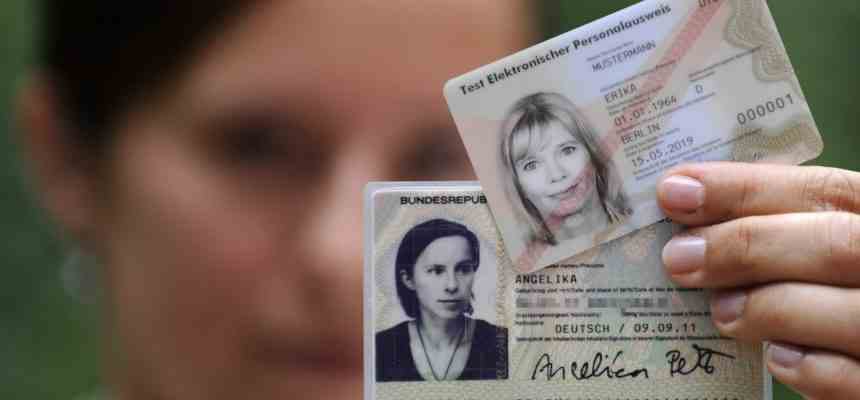A state that “makes people’s lives easier with uncomplicated, fast and digital administration” – the SPD, Greens and FDP want no less in their coalition agreement. But these people still go to the office much more often than digitally on its Internet portal. The Bavarian state government criticizes that the traffic light coalition of all people wants to make this even more complicated for them. She is arguing with Berlin about using the Elster certificates, which are also needed for tax returns.
For example, if a student wants to apply for the federal government’s new 200-euro energy price lump sum, she has to create a user account and identify herself for it so that the office knows that the right person is behind the account. As with many other digital administrative procedures, there are several options for this, the two most important being the electronic ID card and the Elster certificate. The federal government now wants to block the second way: The corresponding transitional regulation expires at the end of June, an extension is not planned. Elster certificates will continue to exist, but they will also be needed for tax returns in the future. When it comes to certification for digital administrative procedures, however, they can only be used by companies and no longer by private individuals.
Bavaria wants to prevent this and has applied for the transitional arrangement to be extended; The Federal Council will debate this next Friday. “We cannot accept the fact that the federal government now wants to switch off this technology without necessity or a sensible alternative,” says the Bavarian Minister for Digital Affairs, Judith Gerlach. Elster has proven itself and is widespread. According to Gerlach, there are 19 million Elster certificates throughout Germany – and one million of these are also used for matters other than taxes.
Only every tenth ID card is actually used for digital administrative procedures
The Federal Ministry of the Interior, on the other hand, is fully committed to the electronic ID card and wants to enshrine this in the new online access law, which is currently being debated in the government. According to a ministry spokeswoman, the aim is to make digital administrative procedures easier, and this requires a “uniform and user-friendly means of identification” that meets the highest security requirements. In fact, the electronic ID card is considered even more secure than Elster. The only problem is: Even a good twelve years after its introduction, it is hardly ever used.
In principle, every ID card issued since then would be suitable for this. However, according to the “E-Government Monitor” survey published in October, only about every tenth person is actually used. In addition to basic skepticism, the main reasons for this are: Those questioned do not know what the electronic ID card is for and how it works, and they consider the application to be too complicated. This was especially true in the early days, when you usually had to buy your own reader for it. Most mobile phones can now read the chip in the ID card using so-called NFC technology. But what you still need: a PIN to unlock, which you then have to change, and a special app on your cell phone.
According to the lawsuit from Munich, the electronic identity card is hardly accepted because of this “cumbersome handling”. That is why one should continue to use the much more widespread Elster technology, at least for three years. In the long run, the Bavarian government concedes that it is right to only rely on the electronic ID card.
There is probably also a bit of patriotism behind their commitment to Elster, because the technology was largely developed by the Bavarian tax authorities a quarter of a century ago. But there is a more fundamental problem behind this: There is no uniform procedure or central portal for digital administrative procedures, instead there has been a proliferation of offers from municipalities, states and the federal government that has grown over many years. The Federal Government would like to make its Bund-ID, which was activated in 2019, a uniform user account throughout Germany. A month ago, the Ministry of the Interior happily announced that six federal states, including North Rhine-Westphalia, would slip under the umbrella of Bund-ID and not develop their state-owned user accounts any further. Other countries, including Bavaria, are waiting or still considering.
The Bund-ID also languished for a long time, but in the past few weeks the number of registrations has literally exploded. Presumably because this is the only way students can get their flat-rate energy fee. At the end of January, the government still had a good 250,000 user accounts, and since then around 1.6 million have been added. However, according to the Ministry of the Interior, the proportion of those who identified themselves with the electronic ID card was only a good quarter.

